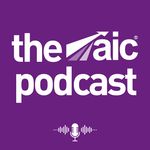12 Sep 2018
Integrated Pest Management (IPM)
20 Jul 2020
The Voluntary Initiative
20 Jul 2020
Rodenticides
20 Jul 2020
OSR Herbicides
20 Jul 2020
Bee Connected
20 Jul 2020
Nematicide Stewardship
20 Jul 2020
Launching Monday 2 March - don’t forget to follow on your favourite podcast platform.


